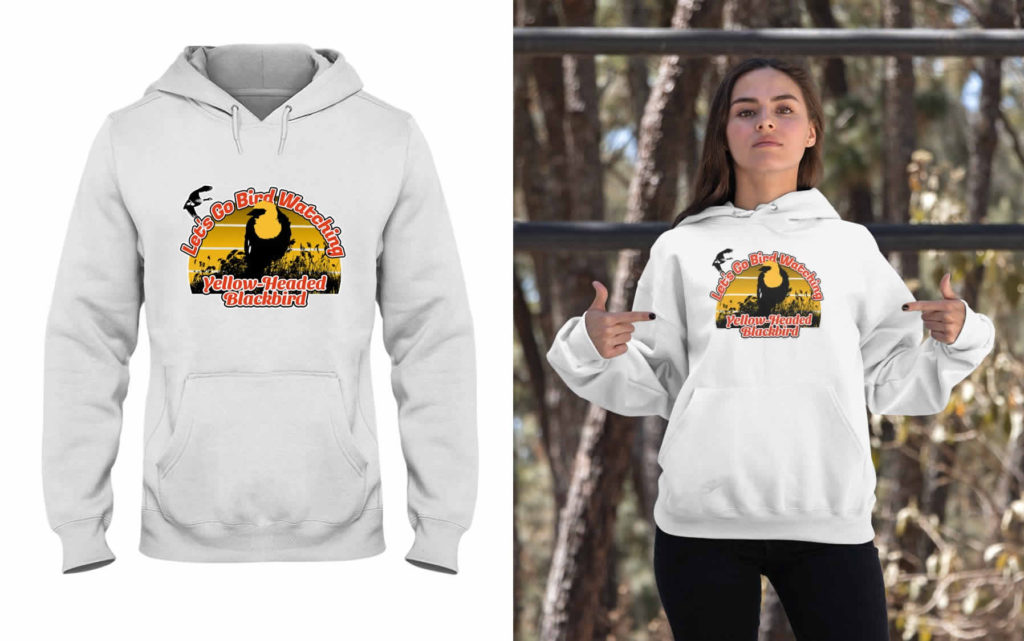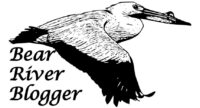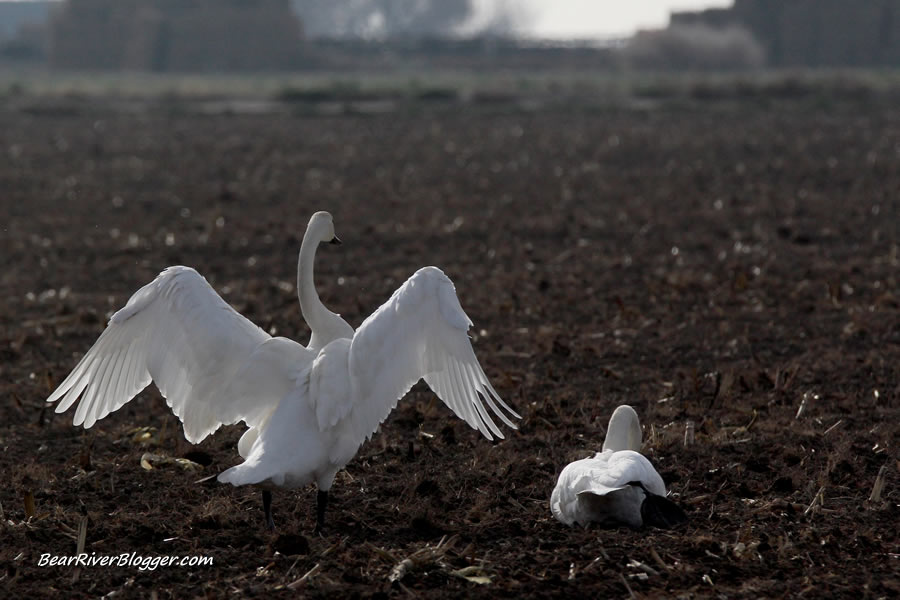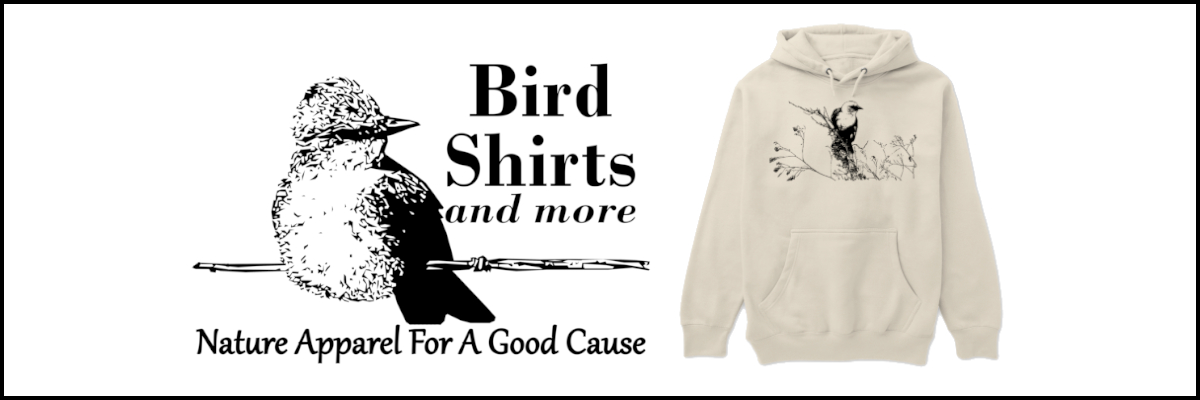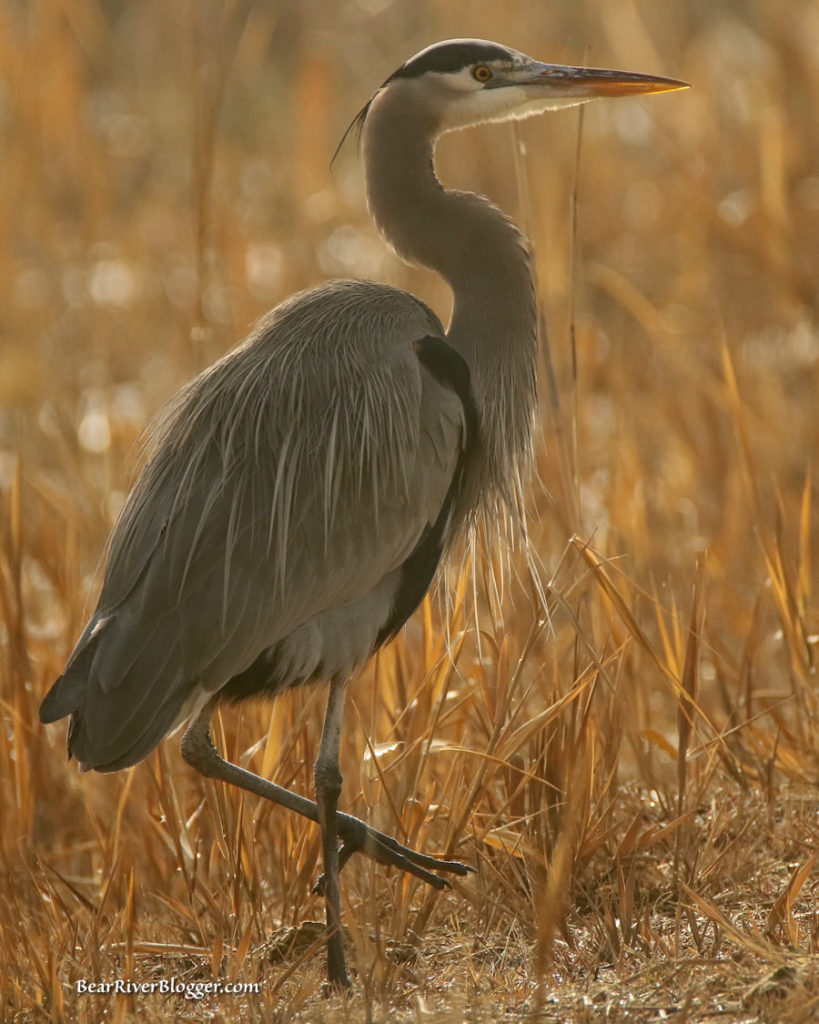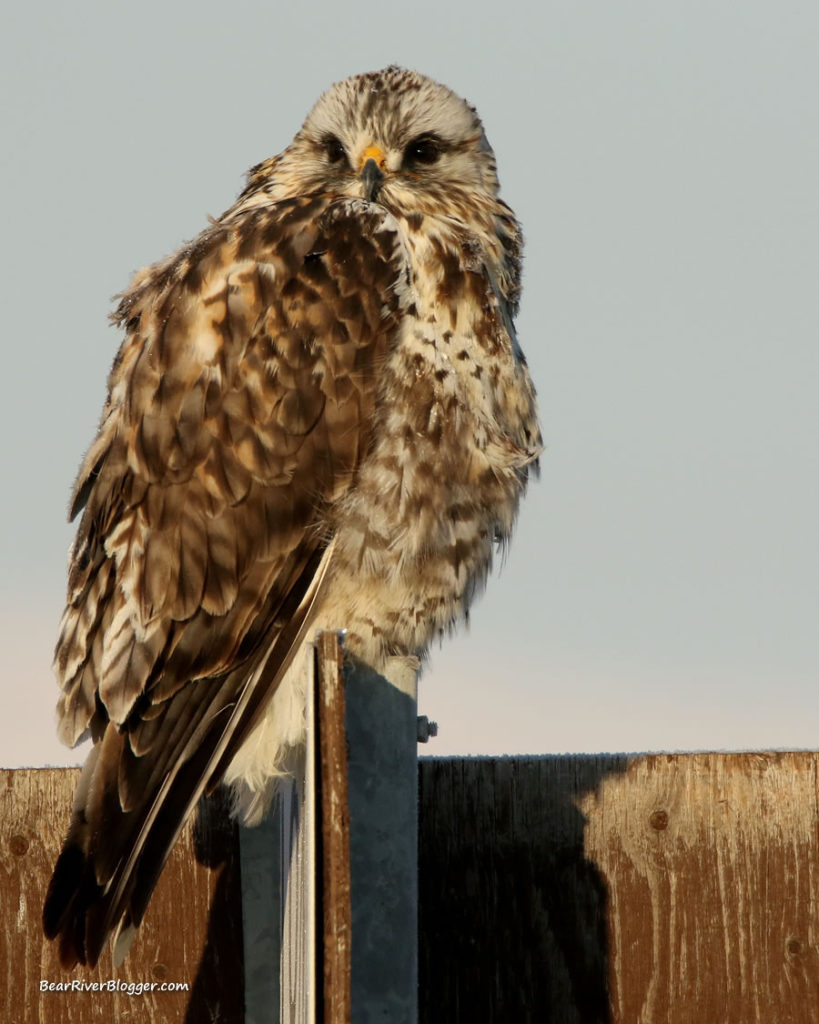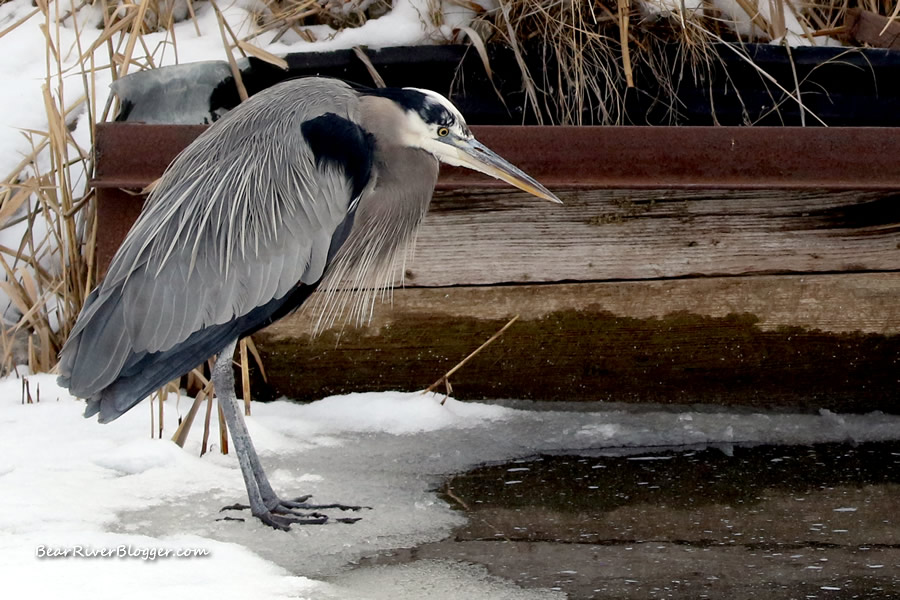Last week, I posted up about a small flock of about 20-30 trumpeter swans visiting a cornfield just north of the Bear River Migratory Bird Refuge.
A few days later as I was out and about, I once again came across that same flock of trumpeter swans in the same field.
But shortly after I started to watch, a tractor showed up and began to plow the field and, unfortunately, off went the swans.
I certainly thought after being pushed out the trumpeter swans wouldn’t return to that same cornfield, but, as it turns out, I was wrong, dead wrong, in fact.
Not only was I mistaken but that flock of trumpeter swans visiting the small farming community of Corinne, Utah not only returned to the very same field, but the flock has swelled to nearly 100 birds now.
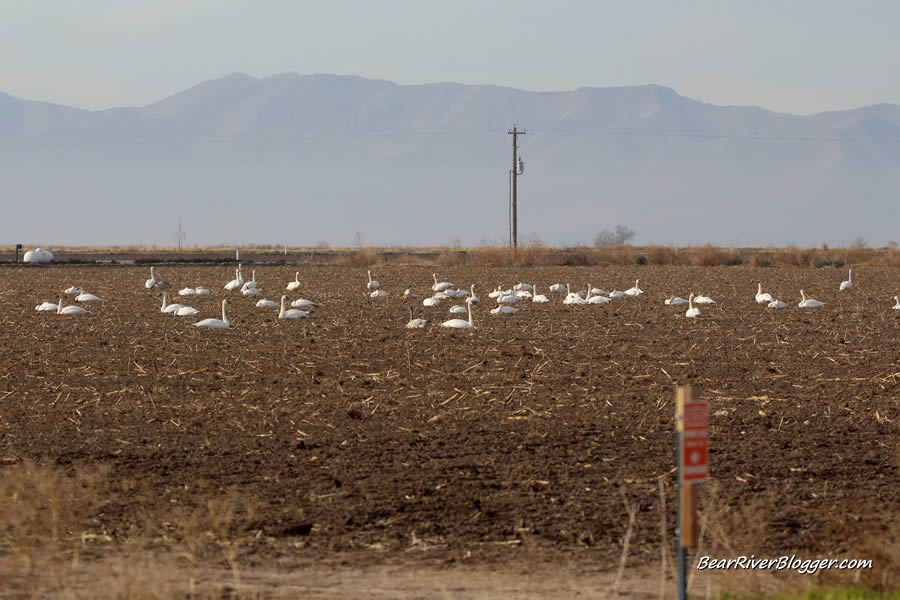
This morning I found myself out and about looking for birds to photograph and I came across that very same cornfield with at least 3 times as many trumpeter swans, and quite possibly more, in fact, feeding and loafing in it as if nothing had happened the week prior.
I watched the flock for about 30 minutes and several smaller flocks of trumpeter swans joined in from afar and landed with the already present birds.
With such an unusually large and seemingly out-of-place flock of trumpeter swans sitting in front of me, I decided to take a drive over to the Bear River Migratory Bird Refuge to ask a few questions.
Utah, the first state to hunt tundra swans back in 1962, is one of several states that currently have a swan hunt, namely for the tundra swan but trumpeter swans do, unfortunately, get harvested during the hunt.
The two swan species are quite similar in appearance and it takes a good eye to discern between the two, something that isn’t easily done on the wing.
So, as a result, Utah, in conjunction with the USFWS, has a limit on how many trumpeter swans can be harvested before the whole swan hunt shuts down early.
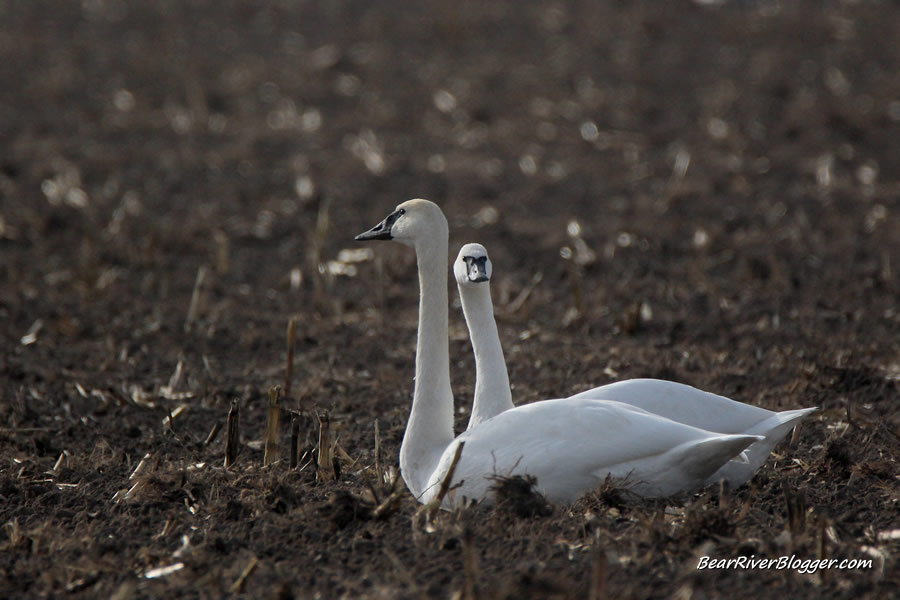
This year, that number is 20 trumpeter swans, and today I learned from the Bear River Migratory Bird Refuge staff that number was reached over the Thanksgiving holiday.
So, from what I was told today, the Utah swan hunt is now officially over for the year.
The reason why I bring this up is biologists really don’t know why so many trumpeter swans are showing up in Utah the past few years.
It seems every year I am personally seeing more and more trumpeter swans just off of the Bear River Migratory Bird Refuge in the small farming community of Corinne.
Some people have theorized that maybe trumpeter swan numbers are up and increasing.
It has also been suggested their migration routes may be changing and we are just seeing more trumpeter swans here in Utah solely due to a shift in migration routes, possibly as a result of the drought or change in the climate out west.
The fact of the matter is nobody really knows where these trumpeter swans are coming from and as such, feathers are being taken from harvested trumpeter swans this year as well as last season to try and match them to known breeding colonies up north using the swans DNA.
Hopefully from this effort, we can get a better idea of where this influx of trumpeter swans is coming from and if it is indeed a population boom or just a shift in migration so as to not let more trumpeters be harvested during the swan season than the population can handle.
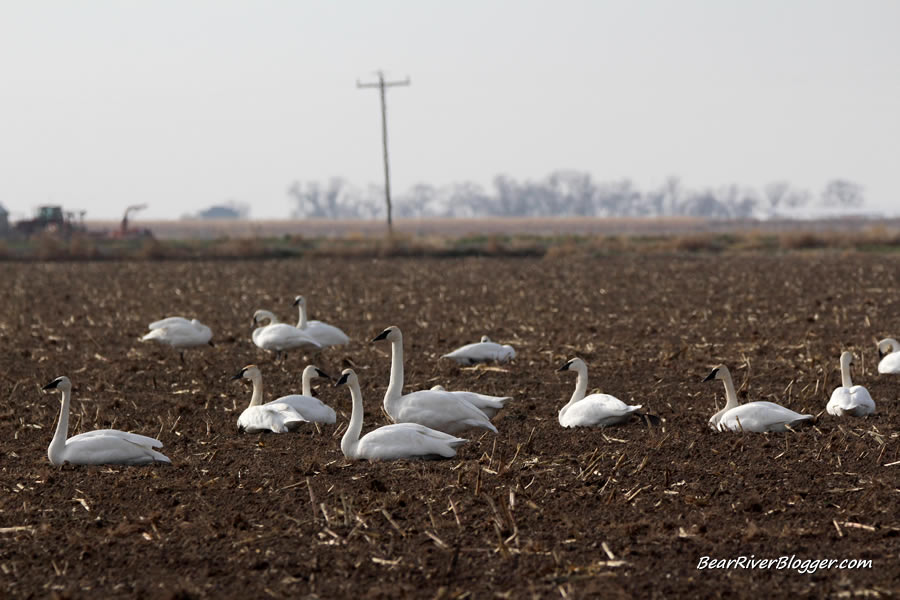
The annual limit on harvested trumpeter swans allowed in Utah a few years ago used to only be 10 but because of the recent influx of trumpeters coming through Utah, that number was increased to 20 birds.
Honestly, I personally think the U.S. Fish and Wildlife Service and the Utah DWR prematurely jumped the gun and shouldn’t have increased that number in 2019 until it was determined if there is, in fact, an actual increase in this regional trumpeter swan population or just a migration shift.
According to the orientation and test potential Utah swan hunters have to take and pass before they can hunt swans, it is thought only 500 or fewer trumpeter swans migrate through Utah each year where tundra swan numbers commonly reach 40,000 and can hit upwards of 60,000 in some years.
If this is the case, I literally witnessed 20% of the annual trumpeter migration in Utah together this very morning in a cornfield.
And this is the second straight year I have been seeing late-season migrating trumpeter swans on a very consistent basis here in Box Elder County, Utah, just a couple miles from the Bear River Migratory Bird Refuge.
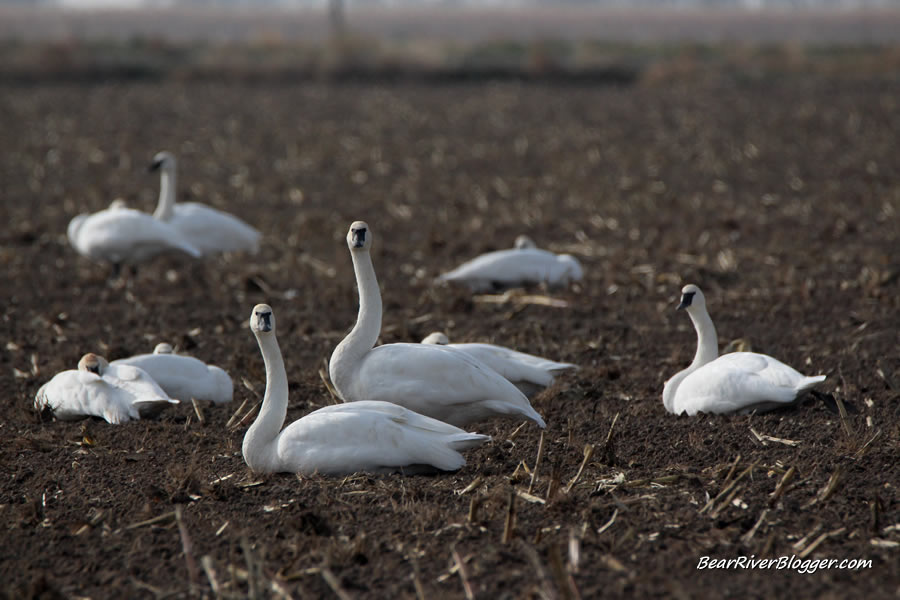
I am extremely happy to see so many migrating trumpeter swans here in Utah, something as a kid I never thought I would ever get to see.
But at the same time, I am not exactly sure increasing the number of allowed trumpeter swans being harvested is the best way to go until it is definitely known the population migrating through Utah is increasing and can handle this mistaken identity during hunting season, as it were.
If truth be told, I personally would like to see no trumpeter swans killed or allowed to be hunted, on purpose or by “accident”.
I am not against hunting at all, but I am against killing trumpeter swans for any reason.
They are such beautiful and majestic birds, one I wish would be taken off the radar for hunting permanently.
Trumpeter swans were at one time endangered due to being hunted for their skin, feathers, meat, and eggs, with less than 70 swans existing worldwide near Yellowstone National Park in 1932.
According to the U.S. Fish and Wildlife Service, it is believed there are around 16,000 trumpeter swans now in North America, but only 500 or so residing in the tri-state area of Idaho, Wyoming, and Montana, the most likely source of Utah’s migrating trumpeter swans.
All in all, we are seeing more trumpeter swans during fall migration here in Utah.
They are hard to discern from tundra swans at first, but after you see and hear a few trumpeter swans for comparison, they are fairly easy to distinguish while out bird watching when you have a few minutes or more to study them.
For more updates on the swans and the Bear River Migratory Bird Refuge from my excursions, I offer you to head on over to my subscribe page and sign up for email notifications for future blog posts.
I also hope you may continue to support our website by sharing any posts you particularly like on your favorite social media outlets.
We appreciate your support and readership for our website.
Birding Apparel
“Let’s Go Bird Watching-Yellow Headed Blackbird” hooded sweatshirt is currently 25% off for a limited time.
For the full line of our offerings, visit our online store for more apparel and gifts for the birder or nature lover on your shopping list.
